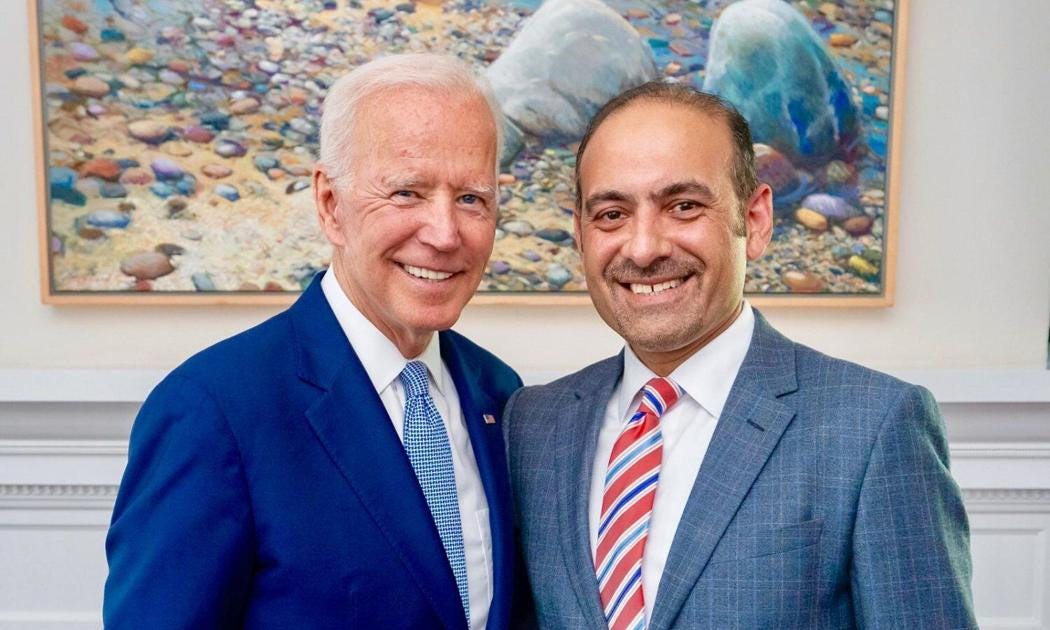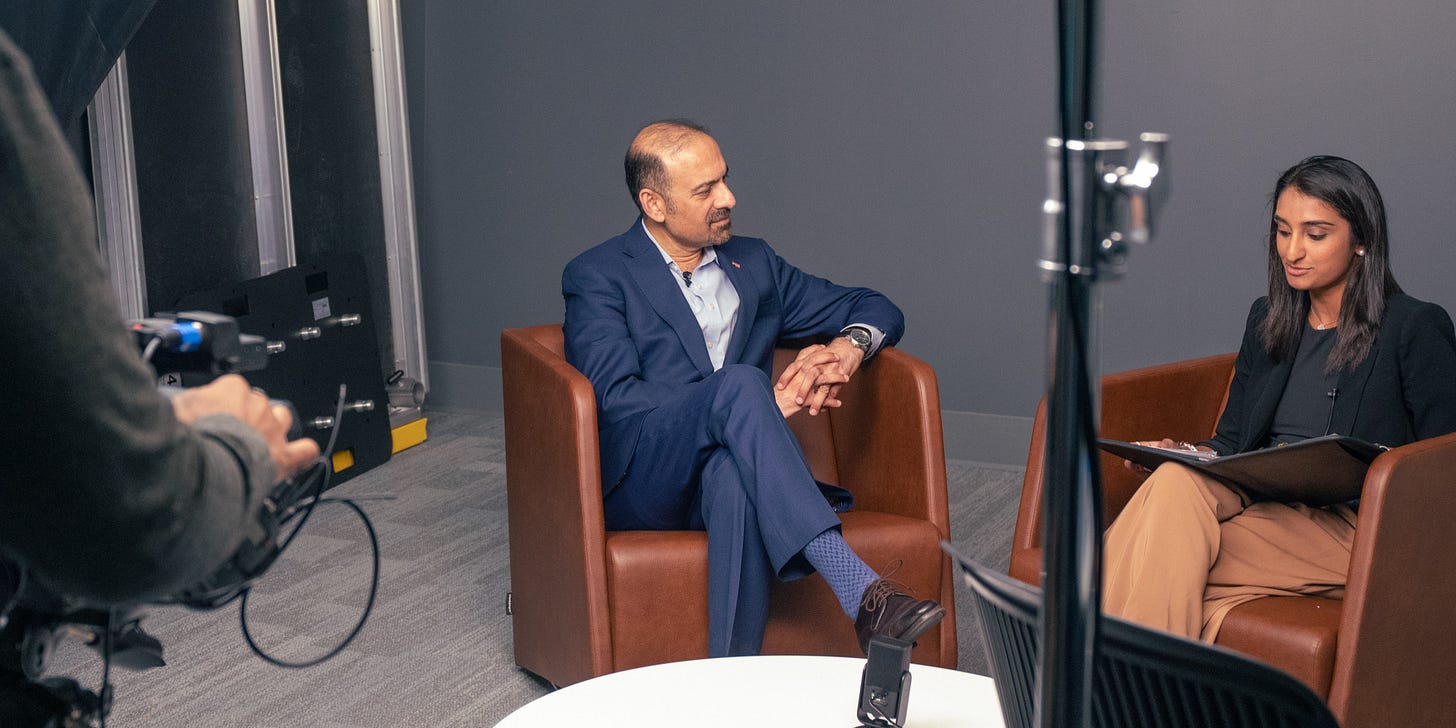Hi! Simi Shah here. Welcome back to South Asian Trailblazers — a media platform, community, and agency dedicated to elevating leading South Asians. Today, I’m introducing you to Dilawar Syed, who at the time of this recording was the highest ranking Muslim official in the U.S. government.
Watch this episode on YouTube or catch episodes on Apple, Spotify, and SouthAsianTrailblazers.com. More special episodes like this one and events where you can join us in person are on the way. Follow along on LinkedIn, Instagram, Facebook, and TikTok.
Season 8 Episode 4 🎤 Dilawar Syed — Former Deputy Administrator of the U.S. SBA
At the time of recording, Dilawar Syed was the Deputy Administrator of the U.S. Small Business Administration (SBA). A role he was nominated into by President Biden, Administrator Syed was the highest-ranking Muslim official in the U.S. Government. Before public service, he was a star in Silicon Valley — serving as CEO of AI-company Lumiata, President at software company Freshworks. He also led business operations at Yahoo!, Siebel Systems, and SAP. He later served as the State Department’s top commercial diplomat, advocating for U.S. businesses globally.
A longtime civic leader, he chaired President Obama’s White House Initiative on AAPIs’ Economic Growth Committee and led small business recovery efforts in California and Silicon Valley. Catch episode excerpts below!
On becoming the highest-ranking Muslim official in the U.S.
Simi: Looking back at 18-year-old you, stepping foot in Austin for the first time — did you ever imagine you’d be the highest-ranking Muslim official in the U.S. government?
Administrator Syed: No, I didn’t. But I always knew I wanted to serve.
What I did know, even then, was that as an immigrant, you have to work twice as hard to get a seat at the table. And sometimes, even when you get there, people will try to push you out.
What I went through in my confirmation process was an example of that. And it reinforced something I tell a lot of South Asians: We stand on the shoulders of the civil rights movement. The only reason so many of us are even here is because Black Americans fought for voting rights, fought for immigration reform, fought for civil rights. We owe them.
So yes, my identity as a Muslim American, as a South Asian, informs how I serve. Because I know that representation matters. I know that I have to make sure doors stay open for the next generation.
On his brutal Senate confirmation battle
Simi: In 2021, President Biden nominated you to be Deputy Administrator of the SBA. What happened next was an arduous, two-year confirmation battle. Can you tell us about that experience?
Administrator Syed: The message was that in our country, you could be of any background, any heritage or faith—as long as you’re qualified and you work hard, you get to serve at any level, including the highest level.
And I recognized pretty early on that that principle was at stake in my confirmation process. I had to get through this, not just for myself, but for the next generation. Because no one should ever believe that their name, their faith, or where they come from is a barrier to serving this country. That’s not who we are.
So I fought. I built a coalition — 200+ organizations, business leaders, and advocacy groups came together. The U.S. Chamber of Commerce, Black business leaders, API organizations, local elected officials.
I learned a lot about persistence. About what it means to stay focused when the stakes are high. And now, having come out on the other side, I carry that same mindset into my work.
On making small business resources accessible to all
Simi: You travel the country meeting entrepreneurs. What’s the biggest gap you’re seeing in small business access today?
Administrator Syed: Awareness. The federal government spends $700 billion a year in contracts. And for a long time, minority-owned businesses weren’t getting their fair share. We’re changing that.
We’re building new lending partnerships, simplifying our loan process, and making sure federal contracts are reaching Black, Latino, AAPI, and veteran-owned businesses. The President set a goal—15% of all contracts should go to socioeconomically disadvantaged businesses by 2025. We’re on track.
If you’re listening to this, visit sba.gov/disaster or sba.gov/funding. There’s money out there for entrepreneurs — it’s just about getting it in the right hands.
On AI and small business innovation
Simi: You have a background in tech. How do you see AI impacting small businesses?
Dilawar: AI is a co-pilot. I tell small business owners this all the time: AI won’t replace you, but it will change how you work. You can use it to develop a marketing plan in minutes, analyze your sales pipeline, and understand your customers better than ever before.
But access is key. That’s why at the SBA, we’re partnering with big tech and local SCORE chapters to train entrepreneurs on AI tools. The future is here, and we need to make sure everyone—especially small businesses—gets to be part of it.







